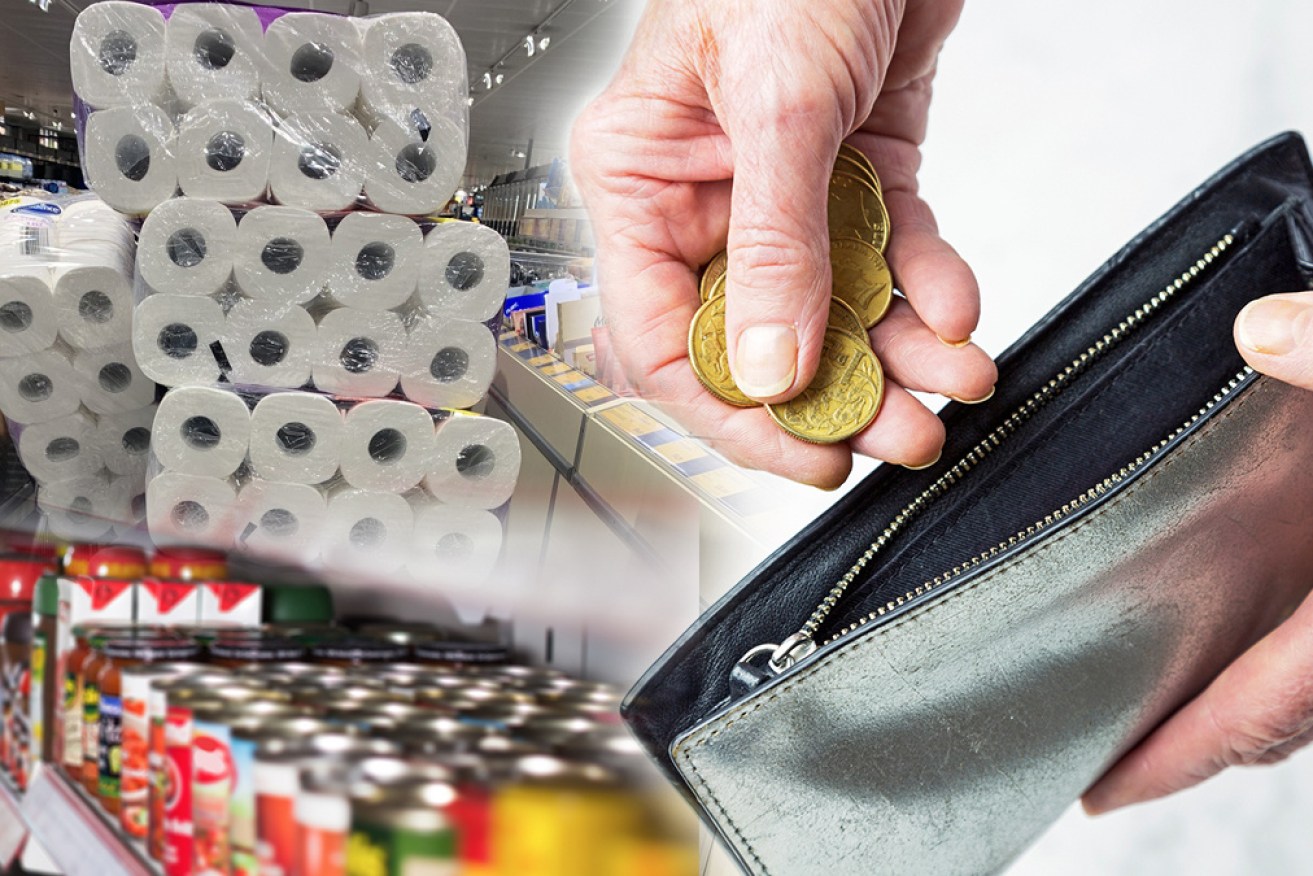‘Selfish’ stockpiling of cheap food staples is hurting low-income earners


Bulk-buying toilet paper and cheap food items is making life even harder for low income earners. Photo: Getty/TND
The sudden spike of doomsday preppers bulk-buying toilet paper and cheap food items means low-income earners are missing out, social service workers warn.
Social media exploded this week with videos and photos of Australian shoppers wiping supermarket shelves clean of toilet rolls and canned tomatoes and beans over fears that a coronavirus outbreak will lead to forced self-isolation.
On Thursday, tension over toilet rolls hit a new extreme when a man was reportedly tasered by police after a violent confrontation over toilet paper at Big W in Tamworth, New South Wales.
Supermarket giants Woolworths and Coles have introduced a quantity limit of four toilet paper packs per customer.
Almost 50 people have now tested positive for coronavirus across the country.
Although it might sound funny that our nation’s first response to the virus was to madly stockpile toilet paper, social service workers have warned the behaviour was no laughing matter.
Victorian Council of Social Service CEO Emma King said the panic buying of toilet paper and cheap staples like beans was “inherently selfish”.
“By buying a trolley load of toilet paper or 40 bags of oats, you’re stopping people who generally don’t have any. People who actually need it,” Ms King told The New Daily.
Low-income earners such as pensioners or people on Newstart Allowance were being hit hard, she said.
“These people manage their income really, really carefully, and now they’re turning up to grocery stores and finding things they need like toilet paper and oats are off the shelves,” Ms King said.
Seriously WTF Australia? Panic buying of toilet paper at Woolies pic.twitter.com/VyYnct4rAV
— Andrew Backhouse (@Andytwit123) March 4, 2020
She said parents of autistic children who only eat certain brands of products are finding there’s none of those left either.
People who have health issues or disabilities were struggling, too.
“There is no need to panic buy, but people with disposable incomes are doing just that,” Ms King said.
“It’s not funny. It’s having a really dreadful impact on so many members of the community.”
Brisbane pensioner Lorelle Tyndale, 69, is one of those community members.
She said she had to drive to three supermarkets and one pharmacy on Wednesday before she finally found toilet paper.
And she considers herself lucky.
“At least I have a car,” Ms Tyndale told The New Daily.
“What about other people who have little or no mobility and have to get public transport?”
Ms Tyndale said plenty of other people would find the mass stockpiling of essential items a “very daunting situation”.
“The toilet paper thing just points out that some people in this country are lucky, but others aren’t,” she said.
“It’s so wrong, because we’re just expected to sit back and think, ‘Oh well, that’s another thing I’ve missed out on’.”
There are special groups of people in our community who do not have the ability to shop on a regular basis, & when they do, they really need the essentials, like toilet paper to be available. Yes, stock up on 2 weeks worth of essentials, but not 3 or 4 months. #bekind pic.twitter.com/bjBNTiYapX
— Foodbank Australia (@FoodbankAus) March 4, 2020
Jacqueline Phillips, director of policy at Australian Council of Social Service, said an added risk of stockpiling was the inflation of prices on food items that fill the baskets of people on a tight budget.
“Tinned food is nutritious and low cost,” Ms Phillips said.
“Those who have no capacity to stockpile will suffer the impacts of price inflation the most.”








